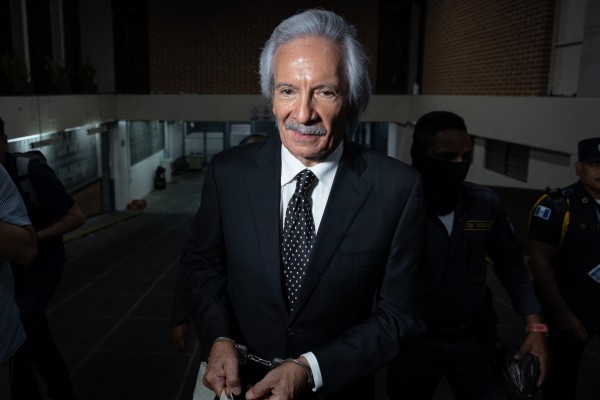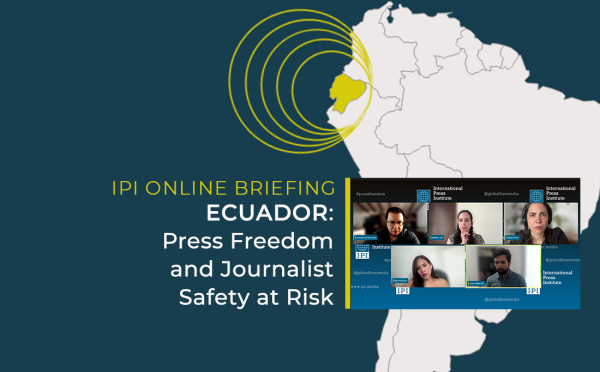In light of Mexico’s Presidential elections that took place on July 1, the International Press Institute (IPI) and the World Association of Newspapers and News Publishers (WAN-IFRA) reiterate thier call upon President-elect, Enrique Peña Nieto, to prioritize the safety of journalists and bring an end to the violence and harassment that reporters face throughout the country.
A total of seven journalists have been killed in Mexico this year, according to IPI’s Death Watch. With 12 journalists killed in 2011 alone, Mexico was the deadliest country in the world for journalists. IPI’s Death Watch also reveals that a total of 54 journalists have been killed since Mexico’s federal government declared war on the drug cartels in 2006, more than double the number killed for the period 1997-2005.
“We appreciate that Peña Nieto will face many challenges in addressing the extreme level of violence that has consumed numerous Mexican cities. Nevertheless we urge him to consider the end of violence against journalists a top priority of his administration, as this has severe and long-lasting consequences on the entire Mexican population,” IPI Press Freedom Manager Barbara Trionfi said.
“During his victory speech, Enrique Peña Nieto emphasized that his would be a presidency of ‘democracy’, ‘freedom’ and ‘transparency'”, said Alison Meston, WAN-IFRA’s Press Freedom Director. “We would like to point out that this will only be possible by ending the levels of impunity and violence currently affecting the work of Mexico’s press nationwide.”
In the most recent attack, Armando Montano, an aspiring journalist and summer news intern for The Associated Press (AP), was found dead in Mexico City on Saturday, June 30.
Montano’s body was found early Saturday morning in the elevator shaft of an apartment building in the capital’s Condesa neighborhood near his residence, news sources reported. While the motives behind the intern’s death are currently unknown, Mexican authorities have opened an investigation to determine the circumstances of his death, an investigation that the U.S. Embassy is monitoring closely.
Montano, 22, arrived in the Mexican capital in early June upon graduating from Grinnell College with a bachelor degree in Spanish and a concentration in Latin American Studies. He was not on assignment at the time of his death, AP announced.
While in Mexico City, Montano covered the shooting of three federal policemen at the Mexico city airport. Upon completion of his internship, Montano planned to attend the University of Barcelona to pursue a master’s degree in journalism.
“To date, there is absolutely no reason to believe Armando’s death is linked to his journalistic work,” said Marjorie Miller, AP’s Latin America editor based in Mexico City. “So far, the Mexican authorities are taking the appropriate action on this case”.
While waiting for the authorities to confirm his journalistic work was not the motive behind Montano’s death, WAN-IFRA and IPI also expressed concern over two other attacks on the press.
In a separate incident, Mexican journalist Rafael Said Hernández, director of the political weekly magazine Revista Tucán, was attacked on June 24 in the city of Oaxaca, southeastern Mexico, the Centre for Journalism and Public Ethics (CEPET) reported. The journalist was stabbed in the chest and leg outside his home. While Hernández remains in stable condition following the attack, he suffered serious hemorrhages.
According to reports Mexican authorities arrested three suspects shortly after the attack, named by the police as Ernesto Gerardo García, 44, Daniel Amador Martínez, 34, and Emilio Martínez Cortés, 29.
Esperanza Hernández, the journalist’s mother, witnessed the attack and told local media that the assailants told her son: “Now you will die for your damn magazine,” before stabbing him, CEPET reported.
IPI and WAN-IFRA have also expressed concern about the disappearance of Mexican-American photojournalist, Zane Alejandro Plemmons Rosales and the Mexican authorities’ current failure to shed light into Plemmons’ whereabouts. The photojournalist went missing on the night of May 21 in Nuevo Laredo, northern Mexico after he left his hotel room to report on gunshots heard nearby.
According to hotel staff, two masked, armed men entered the hotel reception at approximately 3 a.m., demanded Plemmons’ room keys and took all his personal belongings. Plemmons’ whereabouts have been unknown since.
Plemmons moved to Mazatlán in Sinaloa, northwestern Mexico, to work for a local newspaper, El Debate, covering the Sinaloa cartel. El Debate made Plemmons’ disappearance public last Sunday, June 22.
Plemmons’ family told local media that he had traveled for work and to visit relatives to Nuevo Laredo, Tamaulipas state, the headquarters and stronghold of the Zetas drug cartel. When he did not arrive for his scheduled visits, his family grew concerned and alerted both U.S. and Mexican authorities about his disappearance.
In a resolution unanimously adopted by the IPI Annual General Assembly on June 25, 2012 in Port of Spain, Trinidad and Tobago, IPI members called on the Mexican federal government to protect journalists and to end impunity for their killers.
“As violence mounts and government corruption at the municipal and state levels persists, Mexican journalists are in more danger than ever. Fearing for their safety, an increasing number of reporters and media establishments have stopped covering the drug cartels and organised crime. This self-censorship severely restricts the Mexican people’s basic right to information about critical public issues – thereby threatening democracy itself,” the resolution reads, adding: “IPI members said they were aware of the complexity of the public safety challenge confronting Mexico.”


